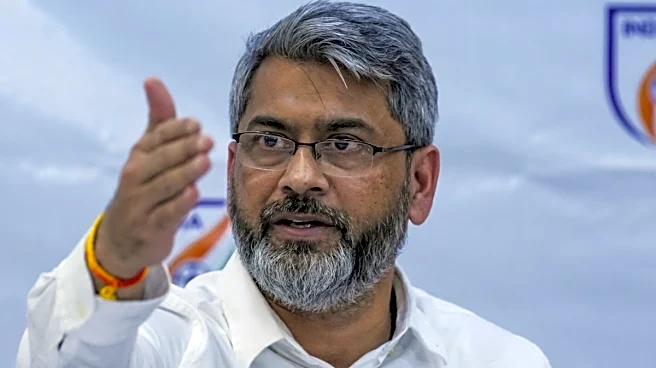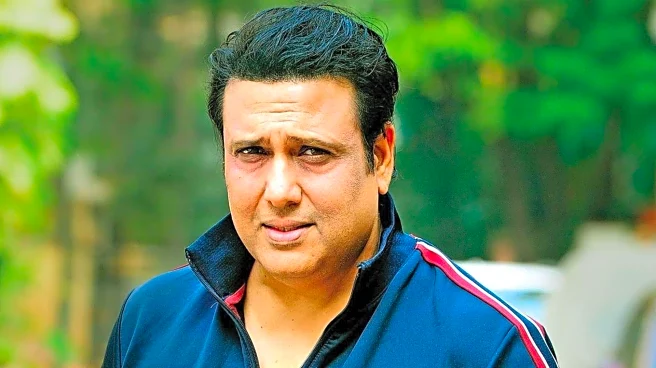Indian football is on the verge of a massive governance overhaul as the All India Football Federation (AIFF) prepares to adopt its new draft Constitution at a Special General Meeting (SGM) on Sunday: a move
that could see a majority of its Executive Committee (EC) members forced to resign from either their national or state posts.
Supreme Court Clears the Way
The shake-up follows a Supreme Court ruling on September 19, which approved the draft Constitution prepared by former apex court judge Justice L. Nageswara Rao, with some modifications.
The top court directed the AIFF to adopt the new charter within four weeks.
The new framework, first conceived under the Committee of Administrators (CoA) led by former Chief Election Commissioner S.Y. Quraishi, aims to align Indian football governance with FIFA’s global statutes: ensuring clearer accountability, restricted tenures, and a strict separation of powers between national and state bodies.
The Clause That’s Causing Panic
One clause in particular — Article 25.3(c) — has sent shockwaves through the federation. It states:
“In the event a person is elected as an Office-Bearer in the Executive Committee of the AIFF and holds a position of an Office-Bearer in a Member Association, he/she shall automatically be deemed to have vacated his/her position in the Member Association.”
In simple terms, any AIFF Executive Committee member who also serves as an office-bearer in their state association must choose one role — they can’t hold both.
Out of 16 elected officials currently serving on the AIFF Executive Committee, at least 12 also occupy positions in their respective state federations. Once the new Constitution is adopted, they’ll be compelled to resign from one post or automatically lose it.
AIFF President Kalyan Chaubey remains unaffected, as he does not currently hold any state-level position.
Why the Rule Exists
The contentious clause was originally introduced by the CoA, later removed by Justice Rao, but reinstated by the Supreme Court after reviewing pleas from various stakeholders.
The Court justified its decision, stating:
“Clauses (b) and (c) are important. Firstly, they are against holding two offices at the same time. Secondly, they ensure that an official at the national federation is not overworked with responsibilities at a member association and vice versa.”
The final version now includes this as Article 25.3(c) and (d) — meaning the restriction applies both ways.
If someone is elected at the state level while already serving nationally, they’ll automatically vacate their national role too.
More Than Just a Power Shift
Beyond the resignation drama, the new Constitution proposes sweeping reforms to how Indian football is governed.
Executive Committee Structure: The AIFF Executive Committee will be trimmed to 14 members, including one President, two Vice Presidents (one male and one female), one Treasurer, and 10 members — five of whom must be eminent players, including two women.
Term & Age Limits: Officials can serve a maximum of 12 years in their lifetime, limited to two consecutive four-year terms.
No-Confidence Provision: For the first time, office bearers — including the President — can be removed through a no-confidence motion.
Promotion-Relegation Mandate: The new Constitution mandates that the top domestic league must operate under a promotion and relegation system, aligning with international football norms.
AIFF as Sole League Owner: The AIFF will become the sole entity responsible for owning and operating India’s top-tier league, ending private ownership models.
This last point marks a major departure from the current setup, where Football Sports Development Limited (FSDL) has managed the Indian Super League (ISL) since its inception in 2014.
What Happens Next
AIFF President Kalyan Chaubey has called for an Executive Committee meeting in New Delhi on Tuesday, where the implications of the new Constitution are expected to dominate discussions.
Officially, the meeting’s agenda lists routine items — including presentations by KPMG on top-tier league matters and approval of annual accounts — but insiders expect the members to debate their next steps under the new legal framework.
With FIFA setting an October 30 deadline for the AIFF to finalize its adoption, the clock is ticking.
(with PTI inputs)


/images/ppid_a911dc6a-image-177072386980164057.webp)

/images/ppid_a911dc6a-image-177072375104238907.webp)
/images/ppid_a911dc6a-image-177072379161842784.webp)







